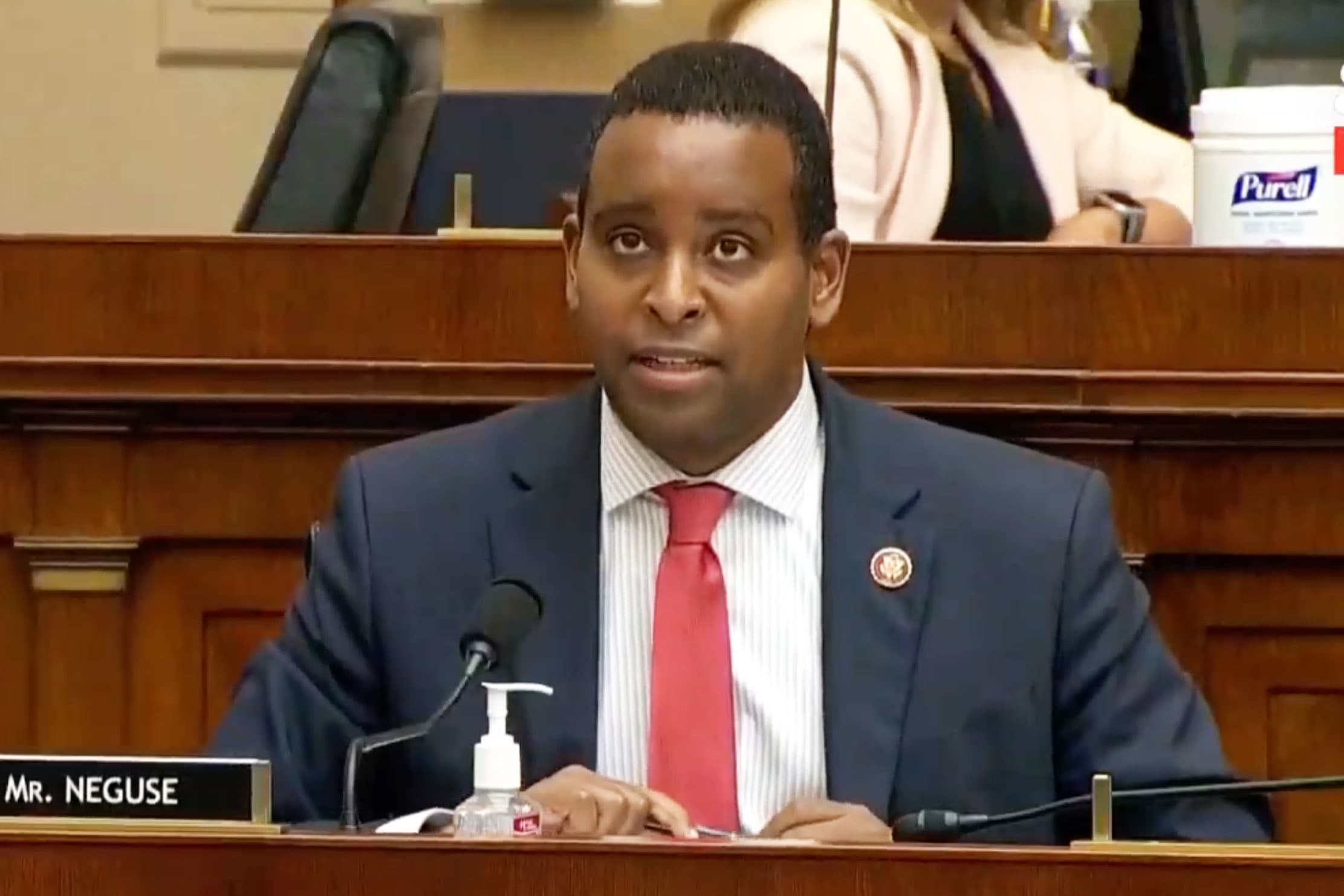A top Democrat on the House antitrust panel sets sights on Big Pharma after wrapping up tech probe

After wrapping up a more than year-long investigation into Amazon, Apple, Facebook and Google, a top Democrat on the House Judiciary subcommittee on antitrust has his sights set on a new industry: Big Pharma.
Rep. Joe Neguse, D-Colo., vice chairman of the subcommittee, is calling for a hearing to probe federal enforcers’ approach to evaluating pharmaceutical mergers.
He made the request in a letter sent Monday to committee Chairman Jerrold Nadler, D-N.Y. and subcommittee Chairman David Cicilline, D-R.I., and shared exclusively with CNBC. From there, Neguse told CNBC, the committee could determine if a full investigation is warranted.
“I think that this first hearing could be a starting point of sorts in providing both the committee and the American public with a better understanding of the scope of issues,” Neguse said in a phone interview. “And from there, depending on what we glean during that hearing regarding the FTC’s merger policy, I think it could very well lead to a broader investigation similar to the investigation that the committee undertook in the digital economy and Big Tech.”
Neguse wants the committee to examine the Federal Trade Commission’s common approach of requiring pharmaceutical companies to divest assets before approving mergers. The two Democratic commissioners at the agency have harshly criticized its historic approach to these mergers and pushed for more thorough reviews.
The agency has challenged 67 pharmaceutical mergers worth over $900 billion since 1994, according to data compiled by the American Antitrust Institute for a September report. But the agency only moved to block one of those deals and settled almost all of the rest with agreements from the companies to divest certain assets, according to the report.
Neguse wrote in his letter that these deals could have a harmful impact on consumer prices, which can sometimes be a sign of an antitrust violation.
“It would be one thing if the acquisitions resulted in deterring future anticompetitive conduct and
decreased drug prices for consumers. However, there is growing consensus that increases in drug prices can be attributed, in part, to mergers and consolidation in the industry,” Neguse wrote, citing a 2017 study from the Government Accountability Office that found that less competition was associated with higher generic drug prices.
The Covid-19 pandemic has called attention to existing concerns of rising drug prices and reduced innovation, Neguse wrote the committee leaders. He told CNBC that drug pricing is the issue he hears about most from his constituents.
“In the COVID-19 environment, it is critical that there is robust competition within our pharmaceutical market; therefore, it is vital for the Committee to determine whether the FTC’s standard approach of pharmaceutical divestitures is an appropriate remedy to address anticompetitive harms,” his letter said.
He pointed to two recent deals: the FTC’s approval ofAbbVie’s acquisition ofAllergan and the proposed merger of Pfizer and Mylan. He echoed the sentiments by the agency’s two Democratic commissioners, Rohit Chopra and Rebecca Kelly Slaughter, in their dissent to the approval of the Pfizer-Mylan deal. Chopra wrote that “the status quo approach of seeking settlements through divestitures of individual products is myopic and misses some of the fundamental elements of how firms compete in this industry.”‘
That merger was ultimately cleared after the parties agreed to several conditions, like divesting from seven products.
Republican Commissioner Christine Wilson, who voted to approve the merger, wrote in a statement that while she shares her colleagues’ concerns about high drug prices, the scope of the FTC’s power is limited. She referred to an earlier statement she issued in approving a different pharmaceutical merger, where she wrote, “Unfortunately, many of the causes of higher drug prices, including systemic distortions created by massive regulatory regimes and a pervasive principal/agent problem, fall outside the jurisdiction and legal authority of the Federal Trade Commission.”
On the day Neguse sent his letter, pharmaceutical giant Merck announced a new deal to buy OncoImmune for $425 million in cash after the privately held company developed a promising drug to treat Covid.
Neguse declined to name specific companies he would evaluate in a potential probe, deferring to committee leadership, which has yet to decide on any such action. But he said the “most central lesson” he took away from the committee’s investigation into tech markets was not necessarily about the specifics of the law, but the value of using the subcommittee’s staff and resources to evaluate potential harm in a specific industry.
“We were able to glean for the American public quite a bit of information that was perhaps not otherwise or previously known,” he said of the tech investigation. “Turning now to the next task, which would be to address this other area where there is clear consumer harm and using those same techniques, in my view, would inure to the benefit of the American public.”




